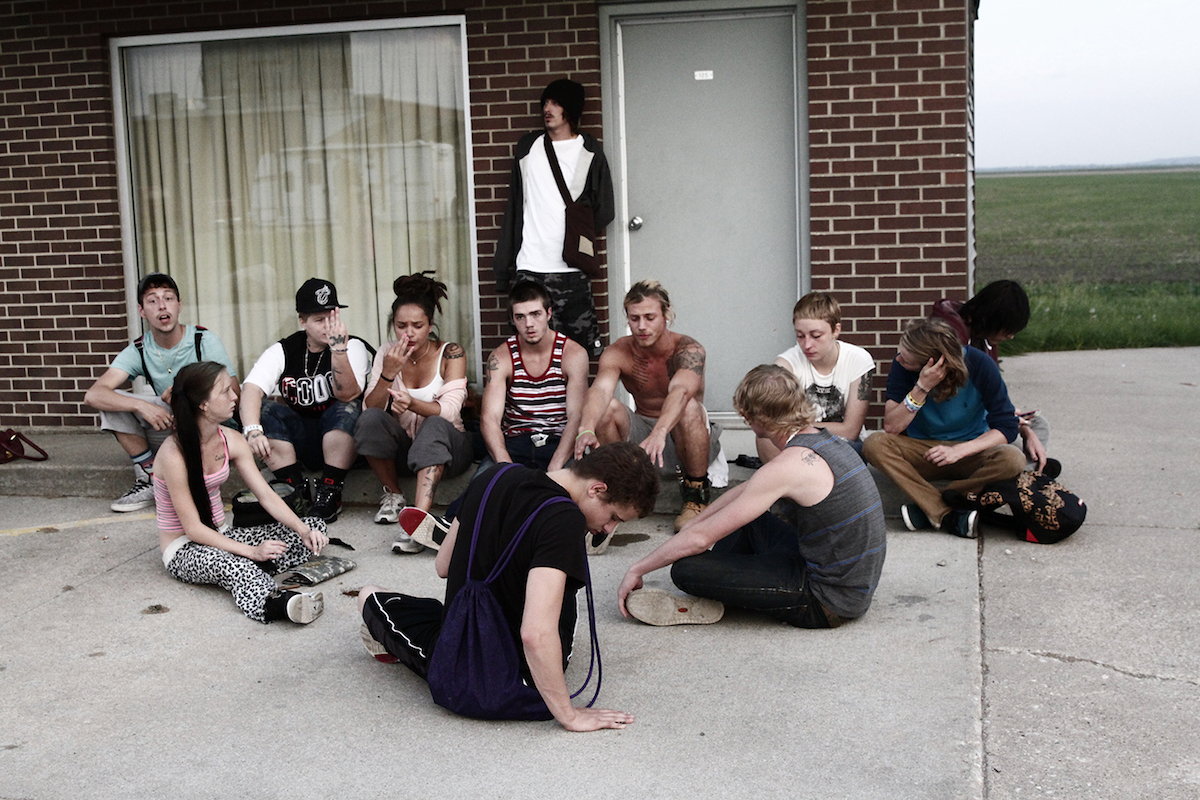
"AMERICAN HONEY will make you feel dirty. Not because it features several scenes of barely clothed young people grinding up against each other (though they are designed to arouse, successfully) but because director Andrea Arnold is so fascinated with the sheer amount of grime, filth and decay that, in her vision at least, constitute the American South. It's there that the British filmmaker chronicles the exploits of Star (Sasha Lane), orphan to a meth-head mother, and her merry band of youthful delinquents (including Shia LaBeouf, at his rattiest) who eke out a living selling – of all things – magazine subscriptions… It's bold, captivating cinema, with a soundtrack that threatens to never leave your head." - Barry Hertz, The Globe and Mail
American Honey (UK/USA: Andrea Arnold, 2016: 163 mins)
American Honey Critics Round Up (Ongoing Archive)
Anderson, Barry, et al. "The Andrea Arnold Connection (2006 - 2016)." Illusion Travels by Streetcar #131 (January 4, 2017)
Arnold, Andrea. "American Honey." IndieWire Filmmaker Toolkit (September 2016)
---. "On American Honey and Preserving Mystery in Film." Fresh Air (September 29, 2016)
Brody, Richard. "American Honey's Silent Youth." The New Yorker (October 5, 2016)
Chang, Justin. "Andrea Arnold's American Honey is an Indelible Epic of the Open Road." The Los Angeles Times (September 29, 2016)
Gleiberman, Owen. "What American Honey Catches (Beautifully) About the Kids: They’re Not All Right." Variety (October 23, 2016)
Kermode, Mark. "American Honey: A Magical Mystery Tour of the US." The Guardian (October 16, 2016)
---. "My Own Private Idaho / American Honey (Pt. 2)." The Next Picture Show #50 (November 3, 2016) ["We return to the road in our two-part exploration of America and self, jumping to the current day with Andrea Arnold's sprawling, music-packed AMERICAN HONEY, a film with some of the same concerns as MY OWN PRIVATE IDAHO, but a much different stylistic approach. In this half, we talk over how the two films handle matters of poverty, style, infatuation, and "the other America."]
McGoff, Jessica. "Andrea Arnold's Women in Landscapes." (Posted on Vimeo: September 2016)
Robey, Tim. "American Honey - Shia LaBeouf has never looked worse or acted better." The Telegraph (October 13, 2016)
Sims, David. "American Honey is a New Indie Classic." The Atlantic (September 29, 2016)
Suzanne-Mayer, Dominick. "American Honey: Andrea Arnold's Tale of Wandering Youth is Striking and Immediate." Consequence of Sound (September 28, 2016)
Tallerico, Brian. "American Honey." Roger Ebert (September 30, 2016)
Whitehouse, Matthew. "Andrea Arnold: How We Cast American Honey." i-D (October 17, 2016)



